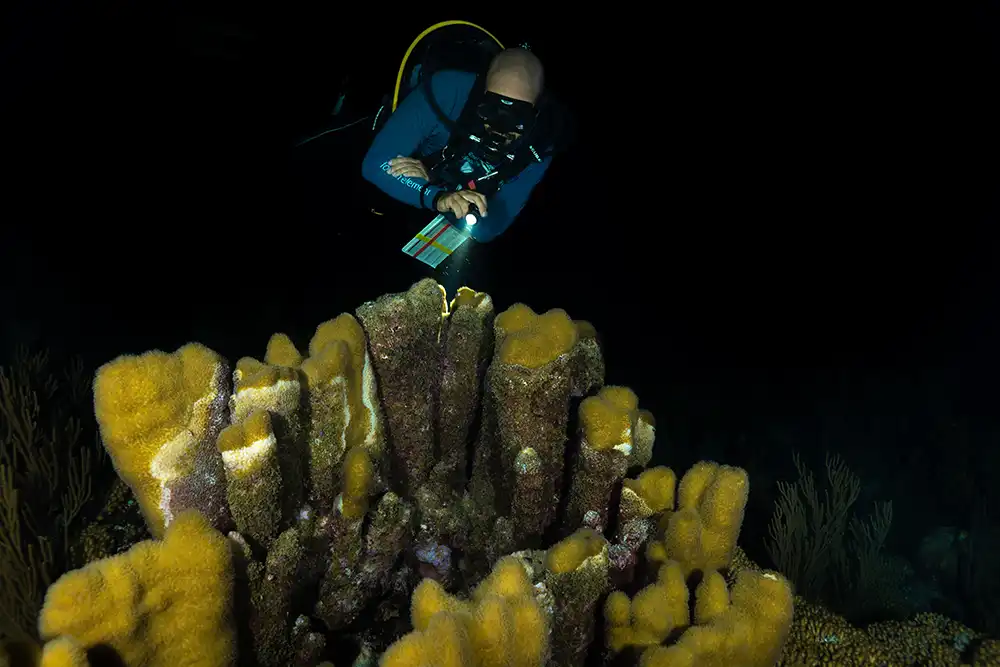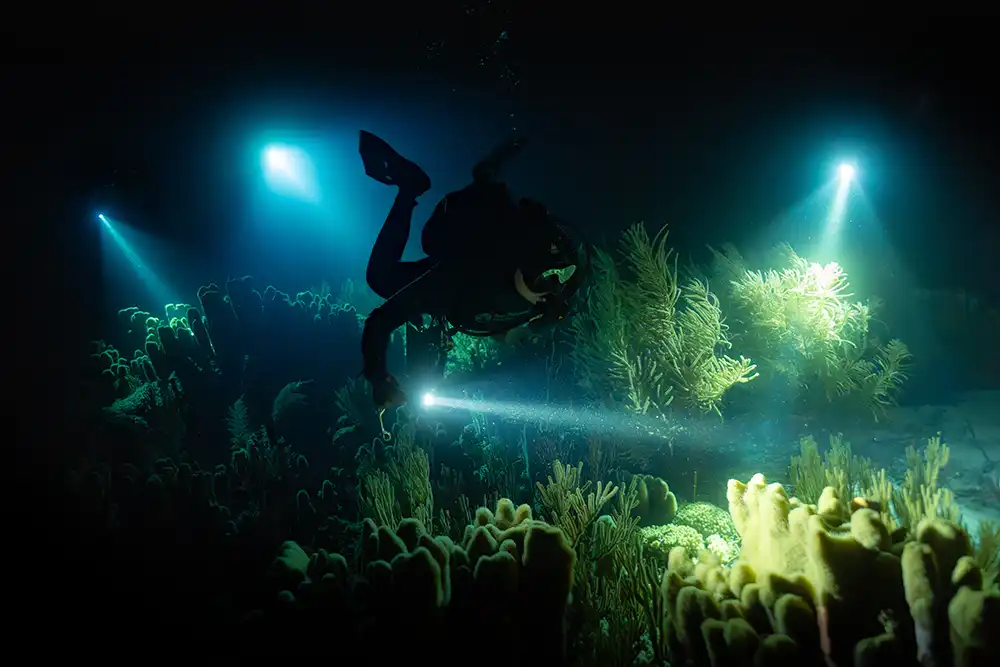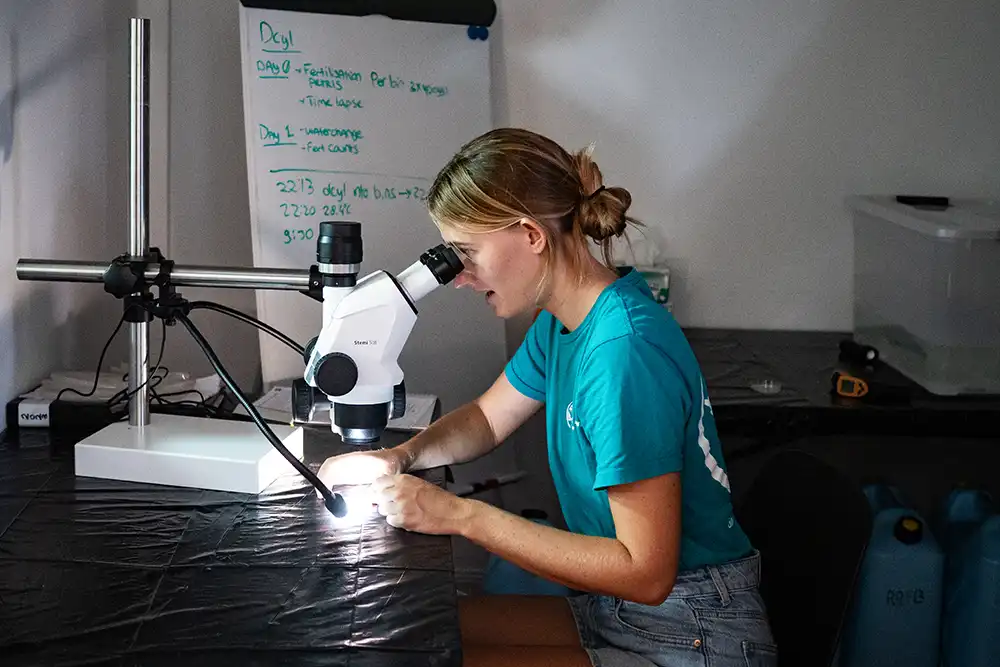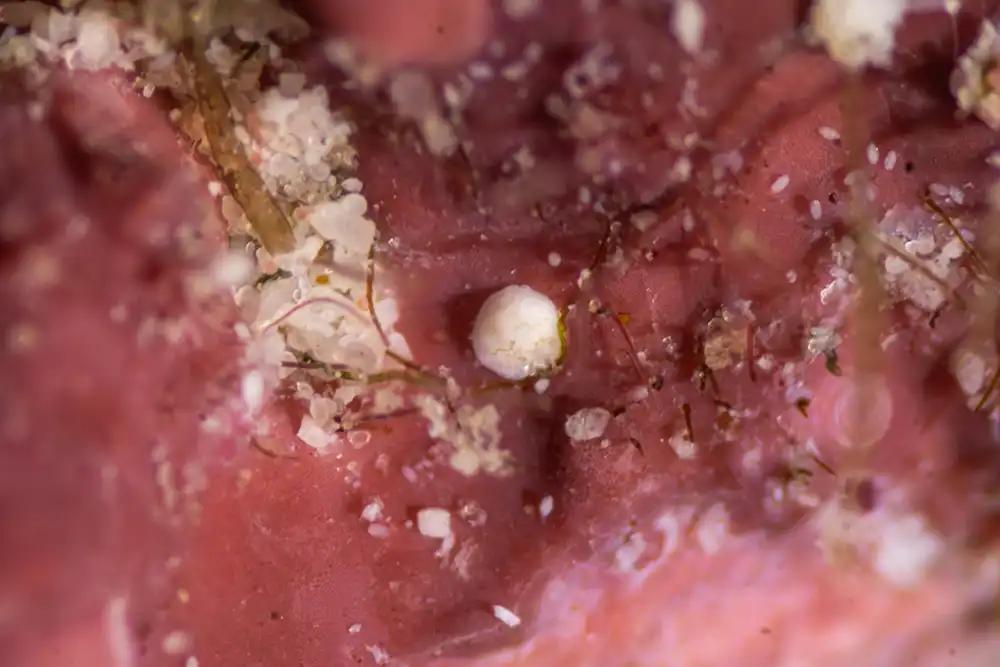
By DIVE Staff
The Reef Renewal Foundation Bonaire (RRFB) has announced that its scientists have successfully bred the rare and critically endangered pillar coral (Dendrogyra cylindrus) in its coral restoration laboratories.
The coral was bred using sperm and eggs collected during a recent spawning event. The young corals will be transferred to underwater nurseries and their growth monitored before being transplanted back into the reef.
Pillar coral is endemic to the reefs of Florida and the Caribbean Sea. Populations across the region have declined sharply in recent years due to the spread of Stony Coral Tissue Loss Disease (SCTLD), and bleaching from consecutive marine heatwaves.
The reduction in pillar coral cover has left only scattered colonies of the species, making natural reproduction difficult as there is less chance of sperm and eggs meeting in the water column.

Increased separation between coral colonies also reduces the likelihood of genetic mixing between colonies. Genetic diversification is one of the key mechanisms by which coral can adapt to changing conditions.
Pillar coral is sometimes called a ‘canary of the reef’, as the species is highly sensitive to ocean change and often the first to show signs of stress.
‘Helping pillar corals reproduce here is more than just a milestone for us— it’s a lifeline for a species that is vanishing from Bonaire’s reefs,’ said RRFB’s Lead Restoration Technician, Cheyenna de Wit.
Related articles

RRFB says that its recent success underscores the critical role of active coral restoration. A growing body of research has shown that coral breeding and fragmentation – in which broken corals are transferred to nurseries to regrow in less stressful conditions – can give corals a better chance to adapt to changes in ocean conditions.
A study published in 2024 following the Caribbean mass bleaching event of 2023 found that ‘assisted sexual reproduction’ was a key factor in creating genetically diverse coral capable of surviving bleaching events.
A separate study published in 2025 also found that tolerance to increased water temperatures can be passed down from parent corals to their offspring, and that young, lab-reared corals show greater resilience to bleaching than wild colonies.

RRFB’s work is part of a wider collaboration with SECORE International and Fundación Dominicana de Estudios Marinos (FUNDEMAR), aimed at testing new coral breeding technologies across the Caribbean.
By applying the techniques at scale, RRFB is now capable of producing tens of thousands of young corals each year.
In addition to its recent pillar coral success, the team was able to produce 56,000 staghorn coral larvae during the same time period, and raised more than 26,000 young grooved brain coral earlier this year.



